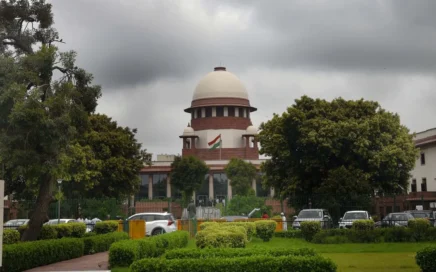The Supreme Court on Thursday said no timelines can be imposed on governors and the president to grant assent to bills passed by state assemblies.
The Supreme Court is also barred from giving deemed assent to the bills, the apex court said in its long-awaited judgment. In its unanimous verdict, a five-judge Constitution bench also ruled that governors cannot sit over bills beyond the powers granted to them under Article 200.
“We don’t think governors have unfettered power to sit over bills passed by state assemblies,” said the bench headed by Chief Justice B R Gavai and also comprising Justices Surya Kant, Vikram Nath, P S Narasimha and A S Chandurkar.
Fixing timelines for governors in a democratic country like India is against the elasticity provided by the Constitution, the court added. Reading out the operative part of the verdict, the CJI said governors have three options under Article 200 — to grant assent to bills, refer them to the president or withhold assent and send them back to the assembly with his or her comments.
“In the absence of constitutionally prescribed time limits, and the manner of exercise of power by the governor, it would not be appropriate for this court to judicially prescribe timelines for the exercise of powers under Article 200,” the bench said. Deciding a plea of the Tamil Nadu government, a bench headed by Justice J B Pardiwala in April this year fixed a three-month period for governors and the president to grant assent to bills passed by state assemblies. The five-judge bench agreed to deliberate on 14 crucial questions raised by President Droupadi Murmu on the apex court’s April 8 verdict.
Exercising her power under the rarely used Article 143 (1), President Murmu had said that in the present circumstances it appears questions of law have arisen and are of such nature and public importance that it is expedient to obtain the opinion of the Supreme Court. Article 143 (1) deals with the power of the president to consult the Supreme Court.













